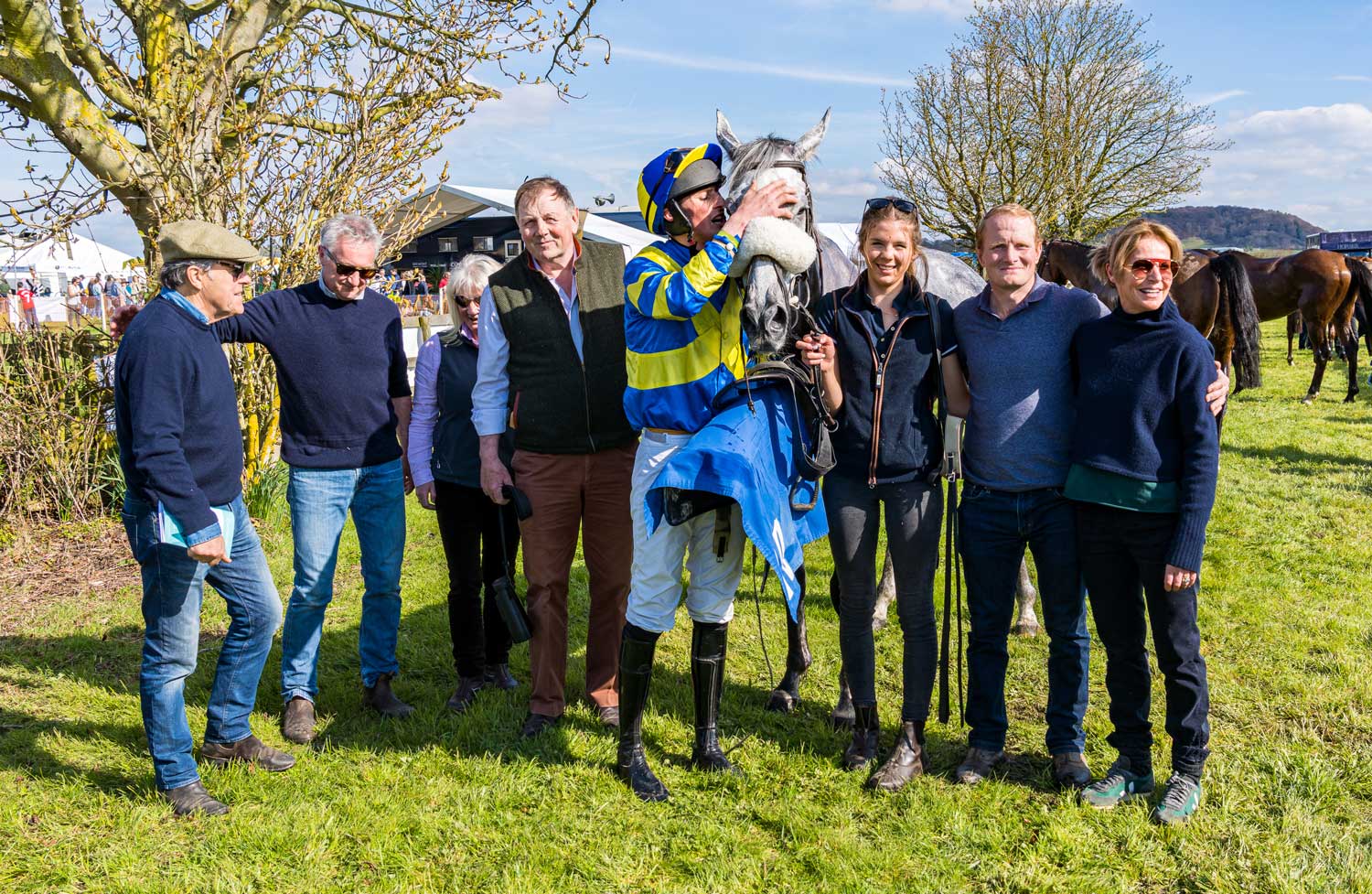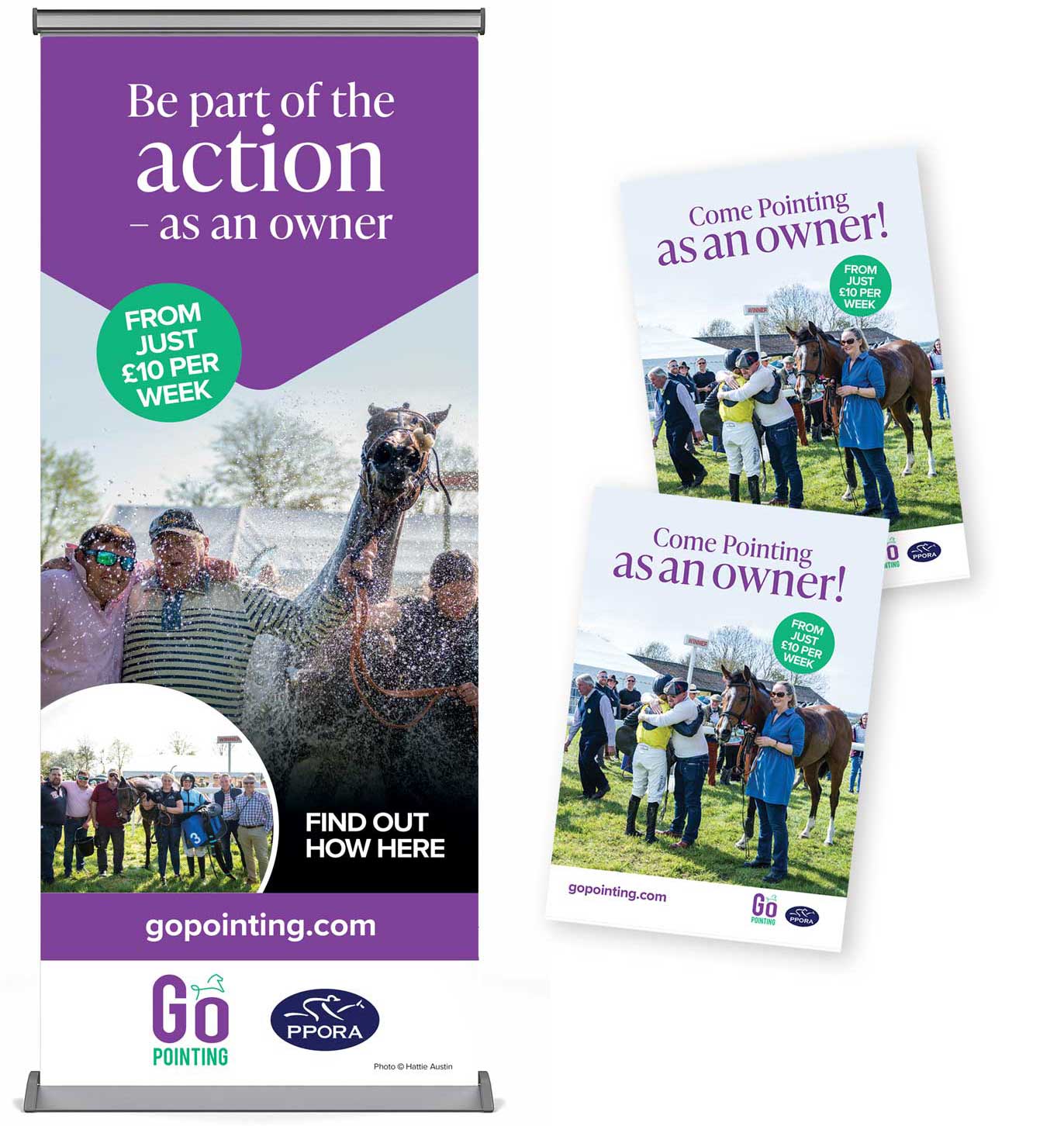BECOMING AN OWNER
Point-to-pointing allows you to experience the fun of racehorse ownership in a relaxed environment. You can get close to the horses, watching them being saddled in their boxes before going to the paddock. It gives you a “Saturday horse”, as you can see your horse run at the weekend with family and friends and enjoy a car boot picnic with fellow owners, your trainer and your jockey.
Benefits of point-to-point ownership include four free entry passes per horse, dedicated owners car parking, a free racecard on declaration and access to hospitality. To find out more about point-to-point ownership and trainers near you offering sole, joint, partnership and syndicate opportunities, contact:
Jake Exelby
PPA Marketing & Sponsorship Manager
jake@p2pa.co.uk 01793 781990 / 07703 106938

This is when you are the only person involved in the ownership of the horse and you have a 100% share in the animal. The horse will run in your name and colours. Any costs or profits will be yours alone.
The benefit of sole ownership is that – along with your trainer – you make the decisions about where and when the horse runs and who rides. Against this, it is the most expensive option – remember that it costs a similar amount to train a point-to-pointer as it does a horse running under rules, without the potential for financial return.
For two or more people who want to share the ownership of one or more horses, and where all members of the partnership are registered owners. Partnerships allow owners to define the percentage of each horse they own and split costs and winnings in accordance with ownership share.
This can be a cost-effective way of entering racehorse ownership. The horse can run in your own colours – sometimes in rotation with other partners – and the training fees and other costs are shared. Decision-making is also shared – in many partnerships, the trainer acts as the final arbiter if there are any differences of opinion.
For people who want to share the ownership of one or more horses, without the necessity of being registered as an owner. A syndicate is managed and administered by an appointed syndicator, and only they need to register as a sole owner.
Syndicate ownership can be fun, sociable and a good way to meet new, like-minded racing fans. Decisions are usually the responsibility of the syndicator and/or trainer and – depending on the size of the syndicate – you do not always necessarily receive free entry tickets to watch your horse run.
Leasing involves ownership of a racehorse for a set period of time. Costs that the horse incurs become the responsibility of the lessee for the lease period and, in return, the horse will run under the ownership of the lessee. At the end of the lease agreement the ownership of the horse returns to the lessor/the legal owner.
The principal benefit of leasing is that you are not faced with the upfront costs of purchasing a horse. On the flipside, if the horse you lease proves to possess ability, you may not be able to extend your involvement if the lessor/legal owner decides to sell it or continue to race it themselves.
While you do not have to register officially with the BHA to own a pointer:
- You can do so if you want to.
- You need to choose your colours, although you only have to register them if you want to run in Hunter Chases.
- You can (and this is recommended for new owners) give your trainer authority to act on your behalf. This allows your trainer to carry out various administrative tasks on your behalf including adding horses into your ownership, completing registration forms and making entries and declarations. An authority to act is registered via the BHA Racing Admin system.
- You can reclaim VAT on point-to-pointers.
- Training agreements are helpful (although not mandatory). The terms which should be outlined in the agreement include the basic training fee, other regular expenses (such as gallop fees, shoeing costs and the like), any additional charges or expenses (such as veterinary fees) and the time and method of payment by the owner.
Point-to-pointing allows you to experience the fun of racehorse ownership in a relaxed environment. You can visit your horse in the box park, chat to your trainer, get up close to the action and go in the paddock before the race. It gives you a “Saturday horse”, as you can see your horse run at the weekend with family and friends and enjoy a car boot picnic with fellow owners, your trainer and your jockey.
This season, gopointing.com is promoting the joys of point-to-point ownership by taking a stand at seven point-to-points across the country.
The roadshow will be visiting the following fixtures:
| Hurworth | Hutton Rudby | Sat 16 Mar |
| Essex & Suffolk | Higham | Fri 29 Mar |
| Vine & Craven | Kingston Blount | Sun 07 Apr |
| Llangeinor Pentyrch | Ystradowen | Sun 14 Apr |
| Berkeley | Woodford | Sat 27 Apr |
| Surrey Union | Peper Harow | Sat 18 May |
Come and visit the gopointing.com owner stand at any of these fixtures, meet fellow owners and trainers, pick up a freebie – we’re giving away Go Pointing beanie hats, tote bags and highlighter pens – and enter the FREE prize draw to win a share in a point-to-point horse for the 2024/25 season. You’ve got to be in it to win it!
Find out more about becoming an owner at www.gopointing.com/becoming-an-owner or contact Jake Exelby, Owner Liaison at the Point-to-Point Authority at jake@p2pa.co.uk or on 01793 781990 or 07703 106938.

